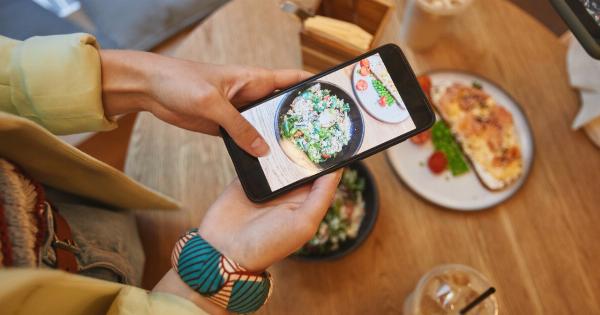When it comes to cooking and re-heating food, the microwave is a popular and convenient tool. However, not all foods are meant to be put in the microwave, as it can change the texture, taste and even the nutrient content of the food.
Here’s a guide to foods you should avoid nuking, with a few visual aids to help you remember.
Fried Foods
You may be thinking that reheating those fried chicken wings or french fries in the microwave is a quick fix for your cravings, but think again.
Microwaving fried foods can cause the breading to become soft and soggy or even make it fall apart completely. If you absolutely need to reheat fried foods, we recommend heating them up in the oven or on a skillet for a crispier texture.

Egg Yolks
We don’t recommend microwaving raw eggs, but if you’re in a hurry, you might be tempted to heat them up a bit. Be careful when doing so, especially with yolks.
Microwaving an egg yolk can cause it to explode, splattering hot yolk all over your microwave and potentially causing burns. If you need to cook an egg in the microwave, pierce the yolk with a fork and cover the bowl with a plate to prevent mess and splatter.

Processed Meats
Processed meats such as sausage, bacon and deli meats can contain high levels of sodium and preservatives. Microwaving these meats can cause the fat to break down, leading to an increase in sodium and other chemicals in the food.
Additionally, the texture can become rubbery and unappetizing. Instead of microwaving, try grilling, baking or pan-frying processed meats to maintain their flavor and texture.

Whole Fruits and Vegetables
While it may sound like a good idea to quickly heat up a whole apple or potato in the microwave, it’s not recommended. Microwaving whole fruits and vegetables can cause them to explode due to the steam that builds up inside their skin.
Cut or pierce holes into the skin to release steam before microwaving. Also, keep in mind that microwaving can break down important nutrients in fruits and vegetables, so try to eat them raw or cook them by steaming or sautéing on the stove.

Bread
Microwaving bread can cause it to become tough, chewy and even rubbery. Instead of microwaving bread, try toasting it in a toaster oven or on a skillet for a crispier texture.
If you absolutely must microwave bread, try wrapping it in a damp paper towel to keep it moist and warm.

Coffee
While you can certainly heat up your coffee in the microwave, it’s not recommended as it can cause it to become bitter. Microwaving coffee breaks down the aroma and flavor compounds, leading to a less-than-satisfying cup of joe.
Instead of microwaving, try using a stovetop kettle or a coffee maker to reheat your coffee.

Sauces and Gravies
Microwaving sauces and gravies can cause them to become lumpy and unevenly heated. Instead of microwaving, try reheating them on the stove in a saucepan, stirring constantly to avoid lumps and hot spots.

Spicy Foods
Microwaving spicy foods can cause the capsaicin in the peppers to become airborne, potentially irritating your eyes, nose and throat. If you absolutely need to reheat a spicy dish, try doing it on the stove instead of microwaving.

Plastic Containers
It’s best to avoid microwaving plastic containers, as they can release harmful chemicals into your food. If you must microwave in plastic, make sure it’s microwave-safe and use it only once.
Avoid microwaving plastic containers that are cracked, scratched or discolored.

Metal
Never put metal objects in the microwave, as they can cause sparks, fires and damage to the microwave. This includes aluminum foil, metal cookware and utensils, and even decorated ceramics with metal trim.
If in doubt, use microwave-safe glass or ceramic containers instead.

Conclusion
While the microwave is a handy tool for cooking and reheating food, it’s important to remember that not all foods are meant to be nuked.
Keep this illustrated guide in mind to avoid explosions, fires, chemical contamination and other mishaps in the kitchen. Eat well and eat safe!.































